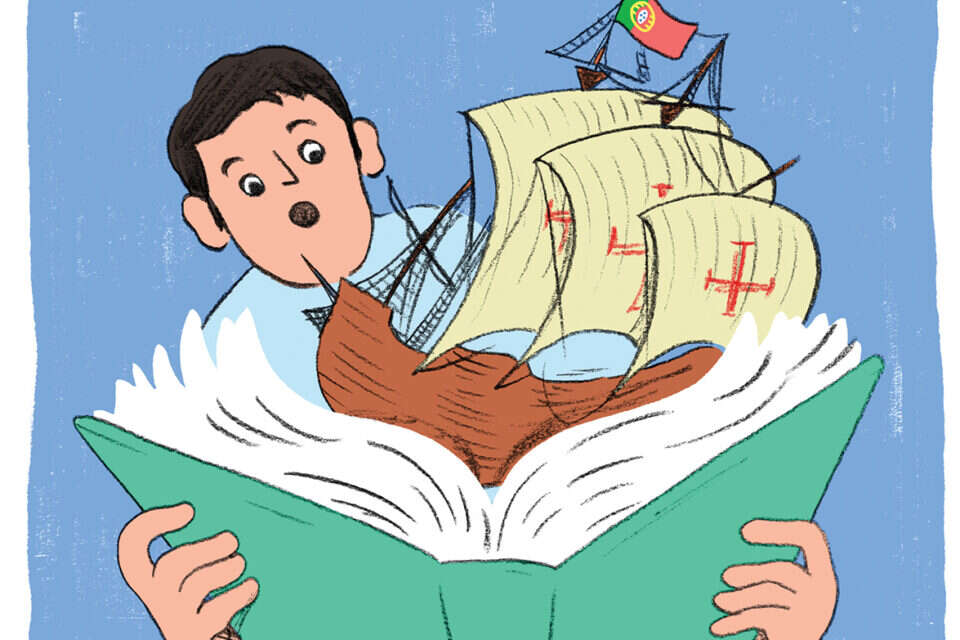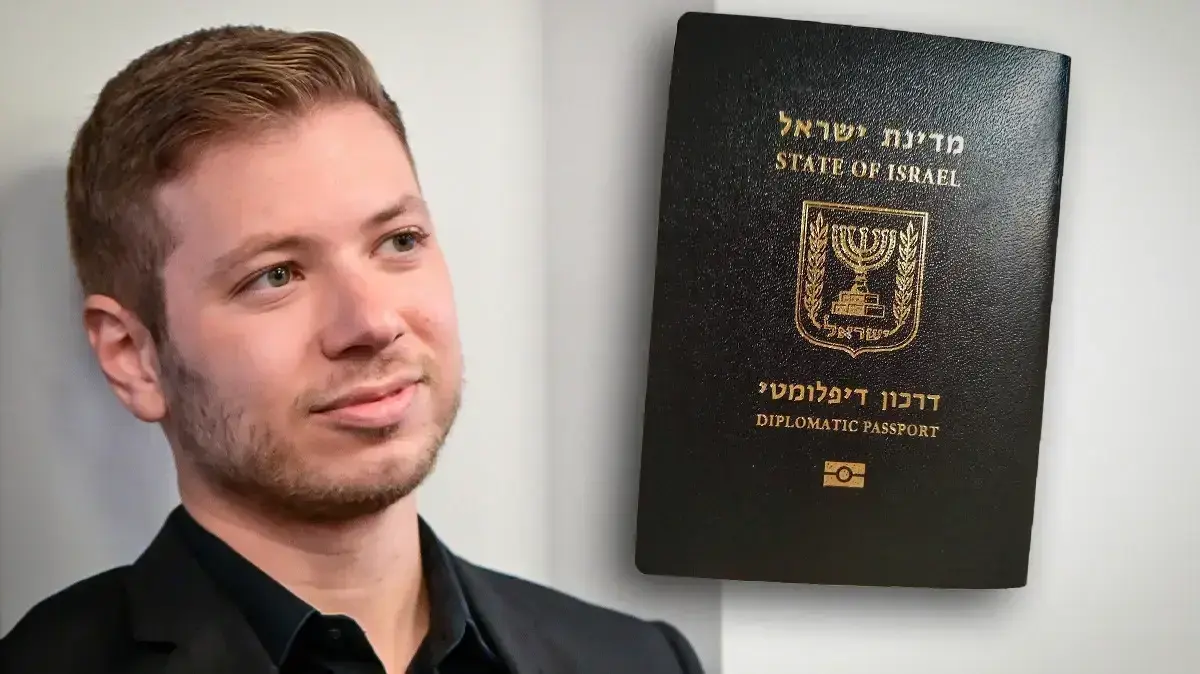The first time I heard rumors and rumors about this inconceivable story was when I visited Lisbon years ago.
It was my only visit ever to Portugal, and I, with my luck, instead of celebrating frivolity and enjoying good beer and good music in the stylish clubs of the mountainous city, found myself rummaging through old stories about the Jewish community.
I had not heard before too many details about the expulsion of Portugal, which was one of the most heinous events in history.
The great story of the expulsion from Spain always overshadowed him and somewhat stole the show.
And in general, the history lessons of our youth left us altogether with a handful of great headlines that told us nothing, and that somehow connected to dates that said even less.
So we came to Lisbon to film a program about the Jewish chapter in the history of the city, and we wanted to hear a human story that would give face to this whole sad chapter.
Wherever we went in the Portuguese capital, and with those we did not talk to, a dark and mysterious story hovered in the air about ships leaving Portugal laden with Jewish children.
Hundreds of them.
This happened in the last years of the 15th century.
The children - the oldest of whom is younger than 15 - were torn from their parents' arms.
The ships sailed south towards the islands off the west coast of Africa, all of which were occupied by the glorious Royal Navy.
Those ships, which turned King Joao's Portugal from a neglected kingdom on the fringes of the European continent into a real empire, did so largely thanks to Jewish sages - Torah scholars and scientists, cartographers and inventors born in Spain, whose prominent names were Abraham Kraskes (often written Karshaks) and Rabbi Abraham right.
Krassex specialized in sketching nautical maps, and right developed navigation devices that opened new horizons to the passion of discovery, wandering and gold of captains, and without which it is doubtful that people like Vasco da Gama or Columbus would have come so far.
But at the time of the brutal deportation, no one remembered the Jewish navigators and cartographers.
In short, the hundreds of children torn from their families were thrown to their fate from the ships some distance from the African shores.
Whoever comes will come and whoever does not - then no.
The story began to take on the character of a fairy tale, when I was told that those children and young people had managed to establish a kind of community on islands like Cape Verde and Sao Tome.
Until the Portuguese conquest, these islands were not inhabited at all, and now the deported boys found themselves in conditions reminiscent of the book "Beelzebub" - no adults at all, and of course no protection, food, spiritual leadership or education.
• • •
Rumor had it that unlike the horrible example of a fly owner, these boys did not become wild animals and did not harm each other.
In fact, they tried to establish a supportive community, and even to keep their names and customs remembered from their homes here and there - in most cases, Jewish homes that were forcibly converted to Christianity kept secret Jewish holiday customs and foods.
There was even a much newer rumor about the ambassador of Cape Verde (Cabo Verde, as it is called in Portuguese) to the UN, who met Silvan Shalom in the corridors of New York, and after introducing himself as a Jewish surname - Ben Uliel or something close to it - asked Tighten the ties between these islands (which gained independence in 1975) and the State of Israel, which has indeed been the case since 2000.
The story stirred the imagination, but it was also what made it feel like a myth.
The kind of legends that are woven into souls are too agitated.
Things burned a certain place in my heart, but it is hard to say that I was surprised to find that in the Wikipedia entries of Cape Verde or Sao Tome there is not a word and a half about the Portuguese Jewish story.
It is only written there that the first population on the islands were slaves and criminals who were forcibly settled there by the Portuguese authorities.
Which shows that the word "criminals" can also apply to families who were raped to Christianity and later sinned by eating a tablespoon of underground khomin in honor of Shabbat.
The same khomin in Portugal was called "adafina" and therefore to this day in some families in the country the khomin is called "dafina".
I repeat this story again because I was recently upset to find out he has historical legs.
Recently the thick volumes of "The Story of the Jews," written by Simon Shama, have been lying by my bed.
Shama is Bloom's treasure trove of knowledge, but unlike other scholars he is also an ingenious and passionate storyteller.
He has written about Rembrandt and Shakespeare, great works of art and petty civil wars, and many books he has written have become successful television series in Britain.
But in recent years it turns out that he decided to return home, and being a British Jew with a place in the synagogue, and the son of a Sephardic father and an Ashkenazi mother, sat and wrote in three volumes selected stories depicting 3,000 years of Judaism and Jews.
I thought at first it was a little too pretentious, and approached the reading out of suspicion, but I must admit I do not remember when I came across a book that caused me more than once or twice to slam it on the table, and come out stunned to the street to freshen up a bit.
Breathe.
Cry like a child.
Or laugh to tears.
Simon Shama is the kind of historian who loves the little stories, the people behind the scenes, and the dramas hidden behind the headlines we were asked to memorize for a test in history.
Equally important, he loves the stories he tells, and even the most annoying features of the most stereotypical Jews he manages to love somehow, or at least tell about them with a loving eye.
• • •
He often stops in the middle of a description, no matter if it is from a medieval neighborhood of simple Jews on the outskirts of Byzantium or an argument that threatens to tear the community apart just before the French Revolution, and he stops only to admit that one of his quotes reminds him of his childhood.
Things Dad once said, or Mom said, or some snooze from the back bench on Rosh Hashanah.
And he is almost happy to find that there are characteristics that are common to rag traders, mercenaries or Jewish astronomers.
Speakers of all languages in the world and residents of every corner.
And it is important to mention this point, because her research mother, and a member of the culture and the Jew, tells a historical story without which nothing can be understood.
And suddenly I find there among the multitude of fascinating stories also the children's ships.
Children of the Portuguese Jews, who were sent to the desolate islands to ask them to survive would be strong and tough enough to serve as slaves, and they would cut down forests, plant orchards and produce for the King of Portugal lots of cocoa, sugar, coffee and money.
And it turns out that this is neither a legend nor a fiction.
I thought of the parents of those children, deported from Spain who had been tempted a few years earlier to the sweet words that had called them to move to Portugal and build a future there.
And I also thought of the wonderful contemporary singer Cesaria Evora, who came from the same island - Cabo Verde - and has won sworn fans all over the world and here with us.
Hava Alberstein and Etty Ankry have often mentioned how much they were influenced by Cesaria, who died in 2011 and whose last name is exactly the name of the city in Portugal from which quite a few of those children were expelled, and you will know.
And I tell this both to warmly recommend to you the "story of the Jews" by Simon Shama, and also to explain why I am in no hurry to make a Portuguese passport.
shishabat@israelhayom.co.il
Were we wrong?
Fixed!
If you find an error in the article, we will be happy for you to share it with us and we will correct it






/cloudfront-eu-central-1.images.arcpublishing.com/prisa/5CYUPDL33BHRNA5AWKOZ3OGFK4.JPG)








